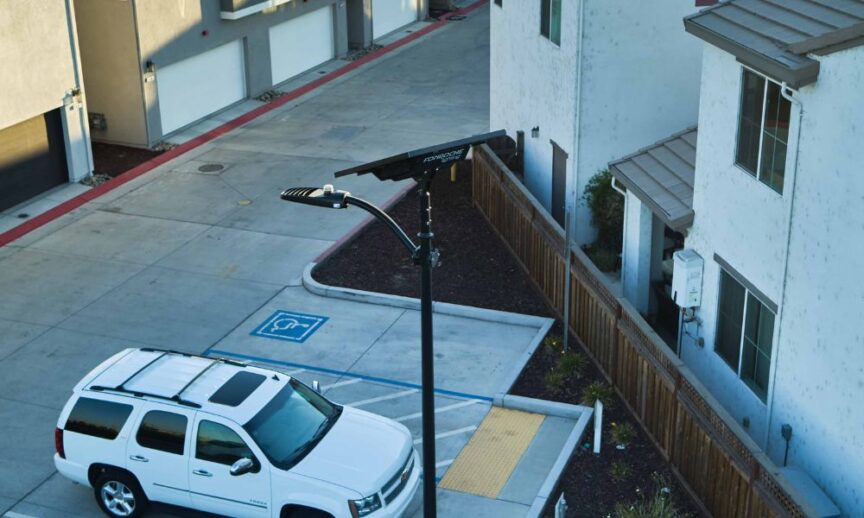Solar lighting has many benefits for businesses and municipalities, from lower electricity bills to reduced environmental impact. Whether you’re a small-business owner just starting out or you’re responsible for an established corporation, understanding the pros and cons of solar energy solutions can benefit your company. In this blog post, we will explore the different advantages and disadvantages of using solar lighting in commercial settings so you can decide if it’s right for your business.
Pros of Utilizing Solar Lighting
Energy Savings
One of the most obvious benefits of solar lighting is the notable reduction in energy consumption. Solar lights use renewable energy from the sun to charge their batteries, resulting in little to no utility costs for your business.
Environmentally Friendly
Transitioning to solar lighting is an excellent way for businesses to reduce their carbon emissions and contribute to a cleaner environment. By using solar energy instead of fossil fuels, you significantly decrease your business’s greenhouse gas emissions, promoting a more sustainable future. Solar lighting is also an impactful way to demonstrate your commitment to sustainability to your customers and partners.
Minimal Maintenance and Installation Costs
Solar lighting systems with LEDs and advanced battery technology require minimal maintenance. NiMH batteries specifically formulated for solar lighting applications and extreme temperatures will last 10 years or more. Commercial LED fixtures have a life span of 20 years or more. This means fewer lamp replacements, lower maintenance costs, and reduced labor time for business owners.
Cons of Utilizing Solar Lighting
Initial Investment
Solar lighting usually involves a more significant equipment cost when compared to traditional lighting options. However, installation costs for solar lighting are lower. There are fewer right-of-way considerations, no trenching and underground wiring costs, and no costs to bring power to the site. With lower installation costs and the long-term savings on energy bills and minimal maintenance, you may recoup your initial investment relatively quickly.
Weather and Location Dependence
The performance of solar lighting systems depends on the weather, lighting location, and the number of hours of sunlight available during the day. Unless you work with a solar manufacturer that provides a site-specific energy analysis and lighting design, solar lights may struggle to perform optimally.
Light Output
Unlike conventional light sources, solar light levels are limited by the amount of energy they can produce and store. Before advances in LED efficacy and battery management technology, this could limit applications for solar lighting systems. However, technological advancements have helped to close this gap, enabling solar lights to offer better light performance. At the same time, communities are recognizing the need to limit light pollution and light trespass. These trends make solar lighting a viable solution for roadway, pedestrian, and parking lot lighting across most of the country. Keep in mind that it’s crucial to request a lighting design to ensure effective lighting for your location.
Making the Switch to Solar Lighting
There are various pros and cons to utilizing solar lighting for your business. Consider both the advantages and disadvantages carefully when determining if this solution is right for your commercial or municipal property.
And if you decide that solar is right for you, reach out to Fonroche Lighting America for help transitioning. We strive to provide reliable solar lighting solutions for businesses looking to reduce their energy costs while contributing to a cleaner environment. Our solar commercial parking lot lights utilize the latest technology to provide a bright and even light spread with minimal maintenance requirements. Get in touch today to find out how we can help you create an energy-efficient lighting plan for your business.

